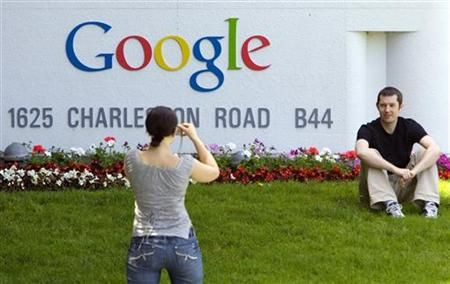Patent War: Google Buys Over 1,000 IBM Charter

Google Inc. (NASDAQ: GOOG) has acquired more than 1,000 technology patents from International Business Machines Corp. (NYSE: IBM), after it lost the bidding war over more than 6,000 patent filings from Nortel Networks.
The patents purchase was reported earlier by the blog SEO by the Sea, which said Google in mid-July recorded the acquisition of more than 1,000 patents with the U.S. Patent and Trademark Office to bolster its portfolio and also to protect itself from patent litigation.
"Like many tech companies, at times we'll acquire patents that are relevant to our business," a Google spokesman told Wall Street Journal.
The patents from IBM covers a broad range of technologies, including fabrication and architecture of memory and microprocessor chips, server and router design, and software programming such as relational databases and object oriented programming.
In the midst of patent deals, Google is facing lawsuits for many of its services, including Android mobile operating system. Several companies have sued Android partners for patent infringement and Google itself faces a patent lawsuit from Oracle Corp. (NASDAQ: ORCL) over Java.
"The tech world has recently seen an explosion in patent litigation, often involving low-quality software patents, which threatens to stifle innovation. Some of these lawsuits have been filed by people or companies that have never actually created anything; others are motivated by a desire to block competing products or profit from the success of a rival’s new technology," Google's general counsel Kent Walker recently said.
Walker said the patent system should reward those who create the most useful innovations for society, not those who stake bogus claims or file dubious lawsuits.
"Google's only recourse was to try to purchase a large number of patents for itself, as it was a younger company with a thinner patent load than many of its competitors," Walker added.
Google was outbid in early July, when a coalition of companies which called itself "Rockstar Bidco" that included Apple Inc. (NASDAQ: AAPL), Microsoft Corp. (NASDAQ: MSFT), Research In Motion Ltd. (NASDAQ: RIMM), Ericsson, EMC Corp. (NYSE: EMC) and Sony Corp. (NYSE: SNE), agreed to buy a portfolio of over 6,000 patents owned by Nortel Networks for $4.5 billion.
The search-engine giant placed an initial bid of more than $900 million for the patent portfolio back in April. However, it couldn't snap up the deal after Apple joined hands with other companies. The group offered five times more than Google's initial bid.
Nortel Networks finished the $4.5 billion sale of its patent portfolio to the "Rockstar Bidco". The sale includes patents covering wireless, wireless 4G, data networking, optical, voice, Internet, service provider, semiconductors and other patents, touching nearly every aspect of telecommunications and additional markets including Internet search and social networking.
Meanwhile, rumors are rife that Google, which has nearly $40 billion in cash, also has plans over buying InterDigital's intellectual-property portfolio after the Nortel patent bid loss. There were also reports that Apple is also considering a bid for InterDigital's intellectual-property portfolio.
Earlier this month, Interdigital said it has initiated a process to explore potential strategic options, which may include a sale or other transaction. InterDigital has about 180 engineers, more than 18,000 patents (awarded and pending), and about 16 percent of the essential LTE patents versus about 3 percent for Nortel.
InterDigital’s patent filings picked up significantly in the last ten years, meaning that the bulk of their patents (and especially the core 3G patents) do not expire until 2020 and later, Jefferies said in a statement.
"In addition to the core wireless patents, InterDigital is testing a video compression technique that requires only a fraction of the normal bandwidth but does not degrade video quality. This would be of high interest to Apple and Google," said Peter Misek, an analyst at Jefferies.
Additionally, InterDigital filed a suit with the ITC against the three original equipment manufacturers and seeks an injunction on their 3G handsets, dongles, mobile hotspots, and tablets. Misek believes this is positive for Apple, RIM, Motorola Mobility, Smith Micro Software, Novatel Wireless, and Sierra Wireless.
"If the ITC rules in favor of InterDigital, Nokia and low-cost Chinese competitors like Huawei and ZTE must accept higher licensing fees or have their products barred from the U.S. We believe this may level the playing field on a cost basis; however, it is possible that InterDigital is sold before the ITC is able to rule on the case," said Misek.
© Copyright IBTimes 2025. All rights reserved.





















